KWICK #024: Reality TV, Books, and Science Fiction
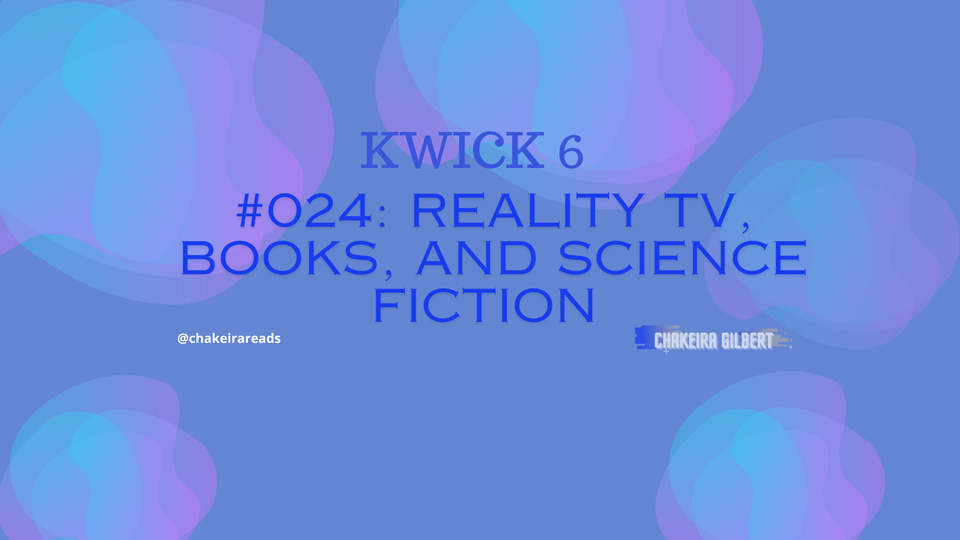
🤔 Thought of the Week:
The Dehumanization of Reality TV: Media Literacy and Critical Thinking in the Age of Entertainment
Recently, I have started watching reality TV again, thanks to my family. However, as Love Island USA hooked me, it did show me there is a general lack of media literacy and critical thinking in our society. While reality TV is entertaining, it’s also reminded me why I stopped watching it.
Reality TV records people’s lives for hours, but we only see a fraction of that in an hour-long episode. For example, in the Stand On Business challenge on Love Island USA, they recorded for around 6 hours, yet it was only featured in the episode for around 30 minutes. But, we make judgments about these participants based on that tiny slice of produced content. We dehumanize them, treating them as characters rather than real people. It’s easy to forget that reality TV isn’t scripted in the same way as traditional shows. However, both scripted and unscripted shows are being crafted to tell a particular story. With reality TV, I am seeing an increase in people taking what they see at face value, and the online fandom amplifies this issue.
This lack of media literacy and critical thinking is a broader societal problem. As we cut funding for education, ban books, and police school curricula, we’re failing to teach people how to think critically or analyze media. In an era where AI can generate realistic content and misinformation is prevalent, relying solely on a single source of information is no longer sufficient. It has never been enough. In the past, we were aware that every source had bias, but now, people often don’t even consider that. Our online discourse reflects this—it’s a window into how people truly think, often revealing cruelty and a desire to dehumanize others for entertainment.
This reminds me of The Truman Show. While reality TV participants choose to be on these shows, the way we treat them as products or characters mirrors Truman’s experience. When they step outside the roles we’ve assigned them, they face hate campaigns and attempts to “cancel” them. Reality TV producers craft storylines, favoring certain participants, and editing footage to create heroes and villains. Even when the participants show us who they are, the public often forces them back into their assigned roles. I recently watched a documentary on Nebula called "17 Pages," which highlighted how the order in which facts are presented can shape our perception of a story. Reality TV operates similarly—producers control the narrative from the start, and we’re left with a biased view shaped by the initial biases of the producers. And when the narrative needs to change, the public then tries to retroactively adjust the show to better fit that new narrative.
It’s easy to form parasocial relationships with participants, that we often forget that they’re real people who face real consequences. It’s also frustrating to see how much producers manipulate the narrative. If I’m going to watch something scripted, I’d rather it be a coherent story that leaves a positive impact. While watching reality TV is not inherently wrong, we must remember that, although not scripted, it is produced to evoke a certain feeling about real people.
17 Pages was a well-done two-part series that presented two sides of a complex issue. It made me realize how important it is to consider multiple viewpoints before forming conclusions. I recommend it to people interested in media literacy and critical thinking and how the order of presentation shape our understanding. In a time where media significantly shapes our understanding, it’s crucial to approach it with a critical eye. Let’s strive to see the humanity in others, even when they’re on our screens.
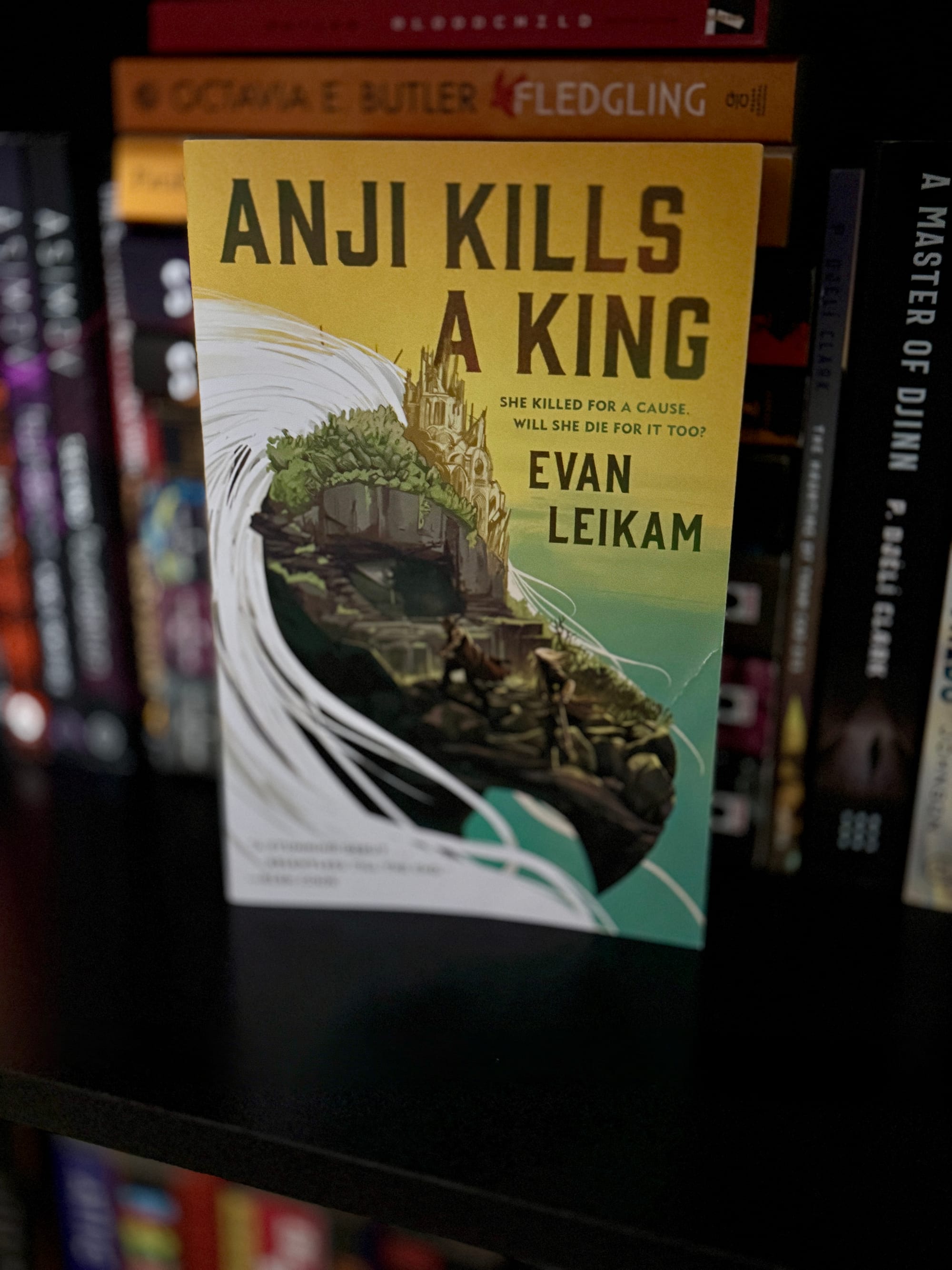
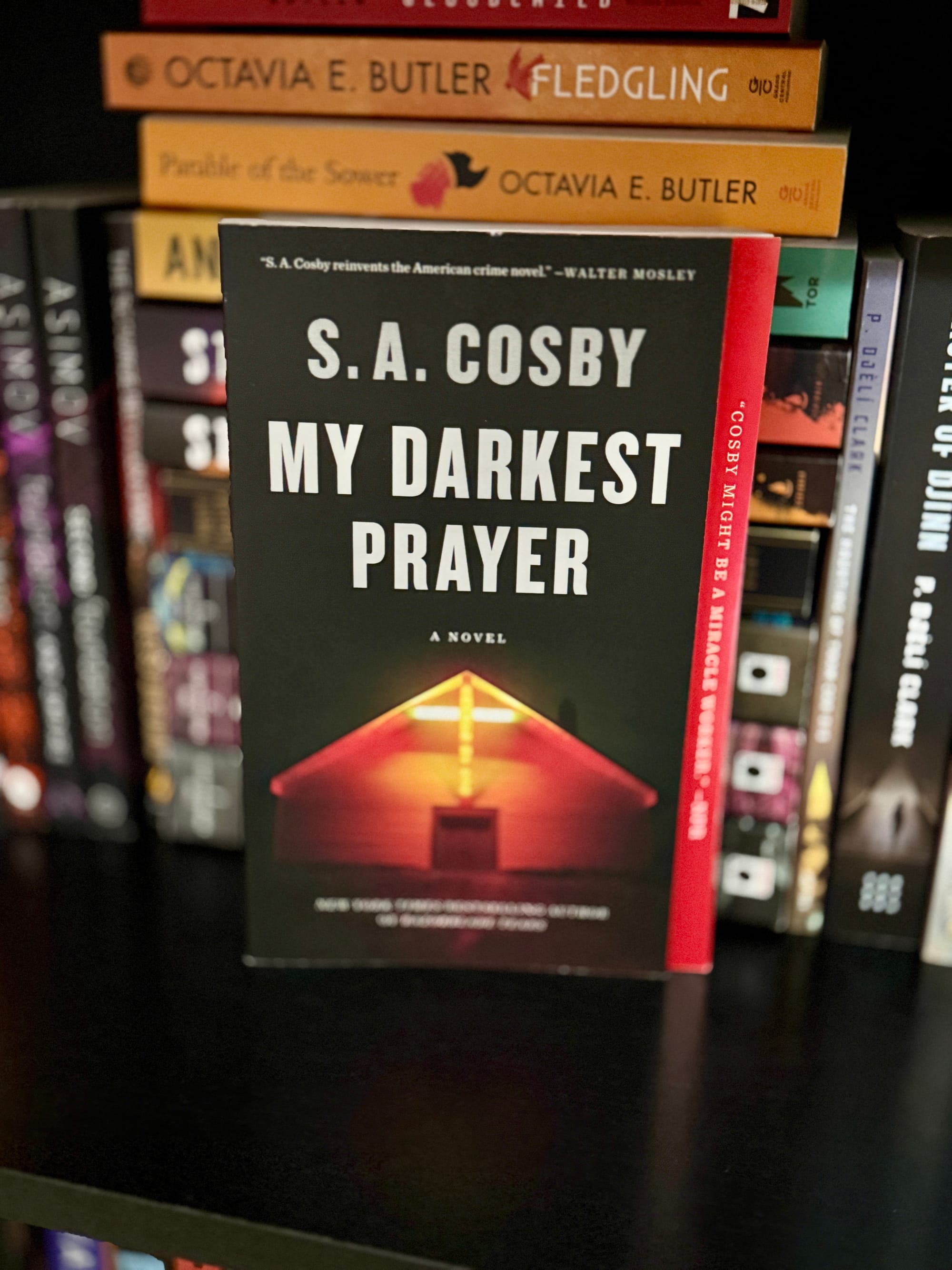
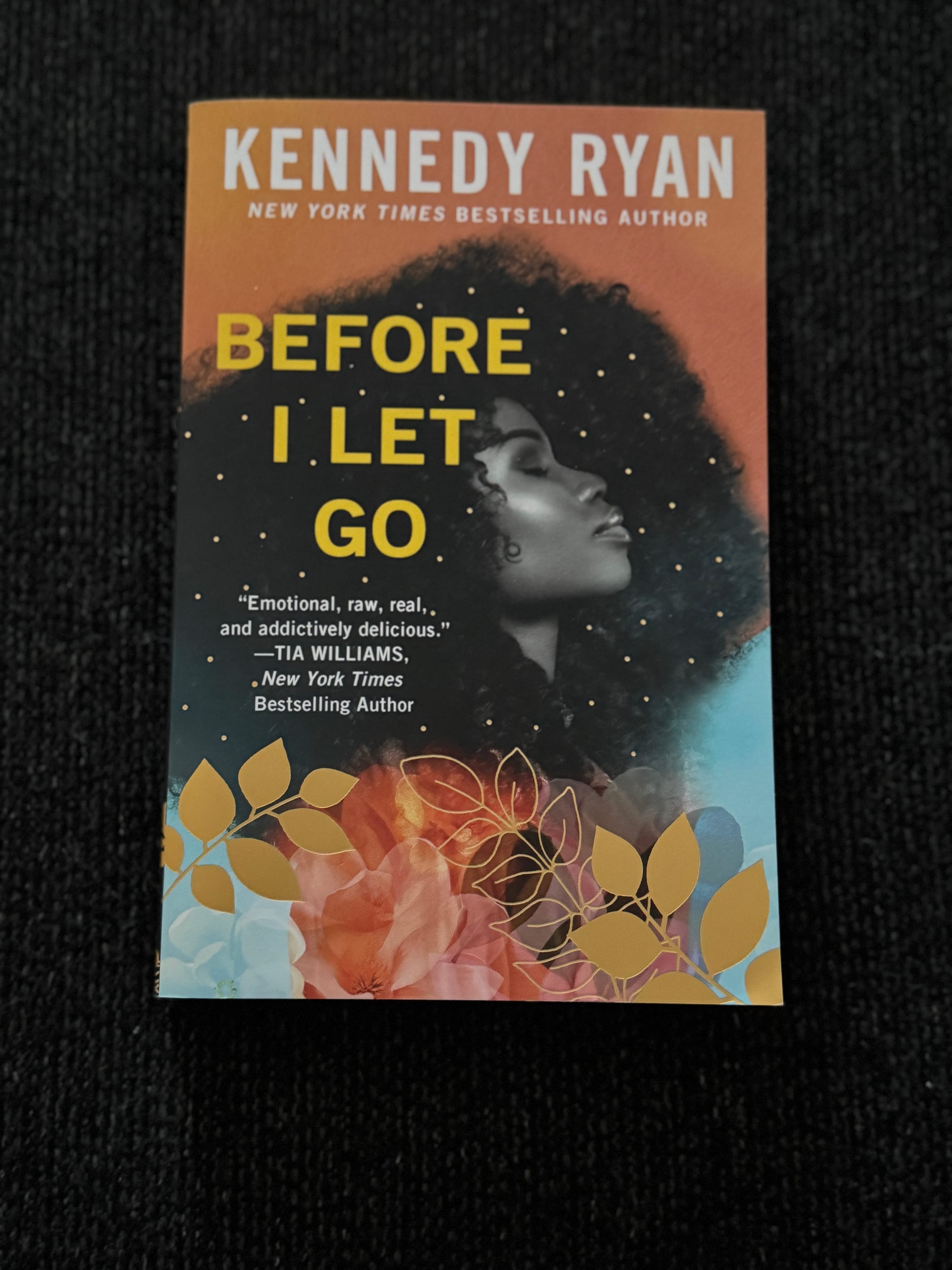
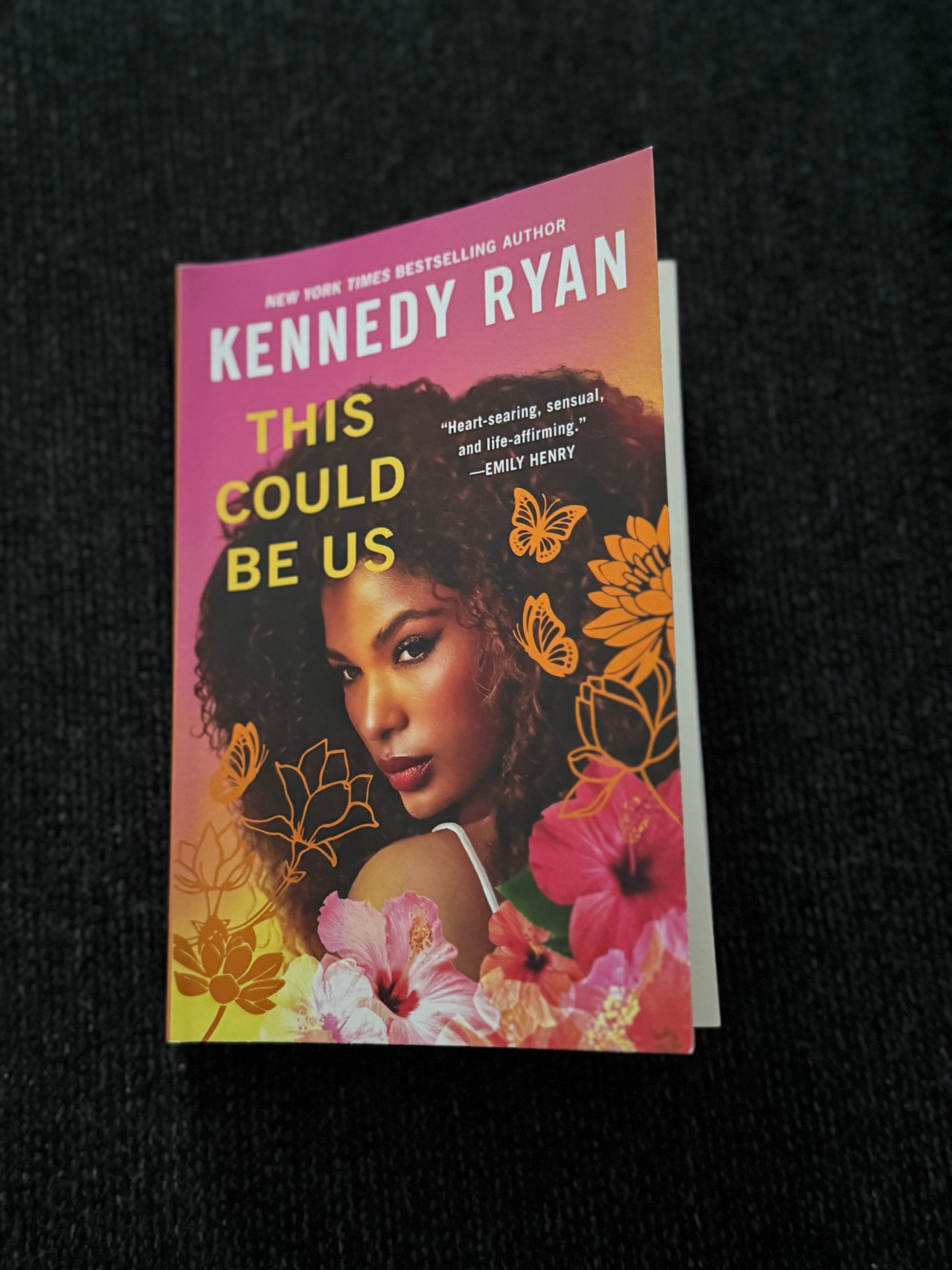
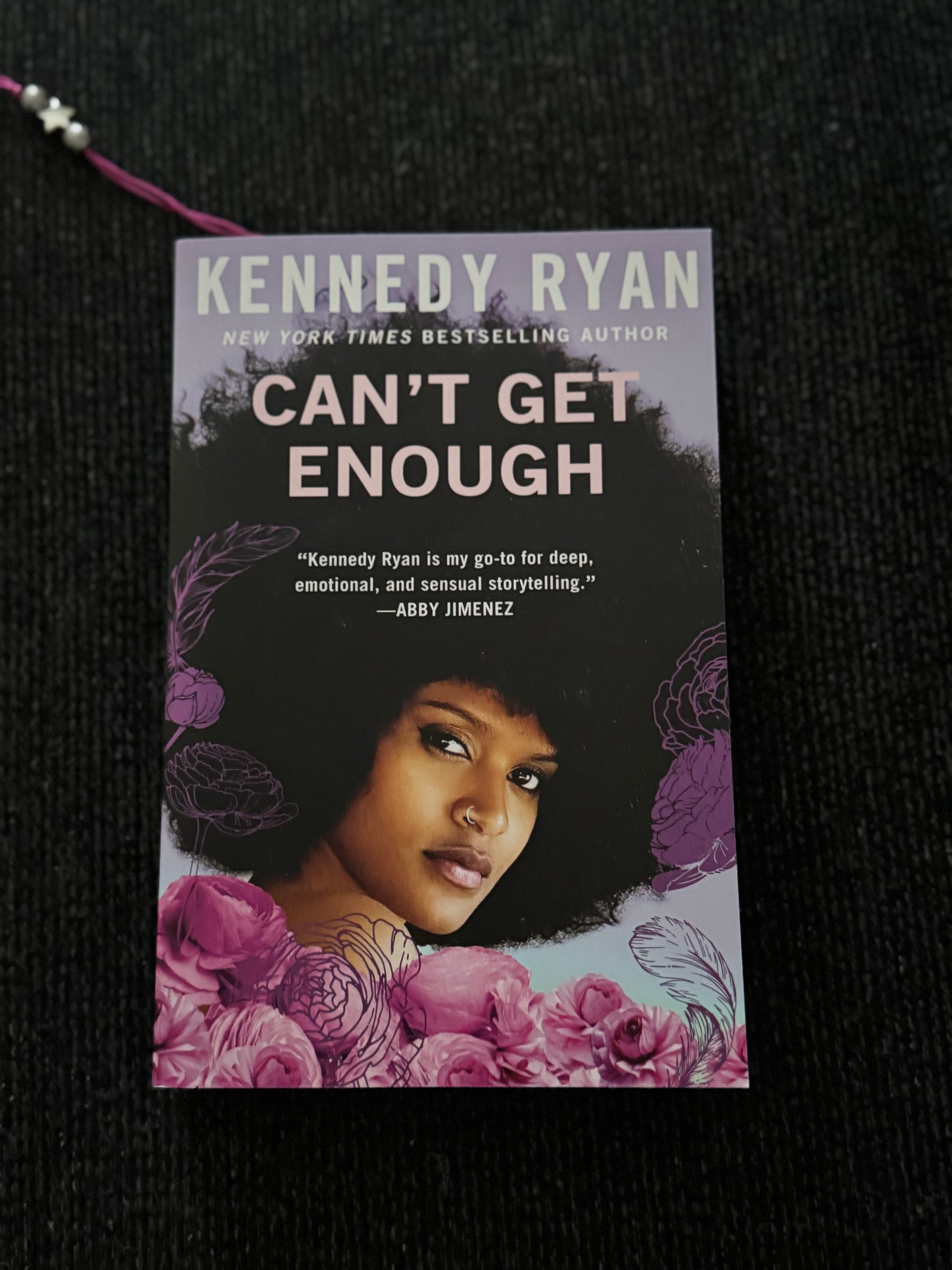
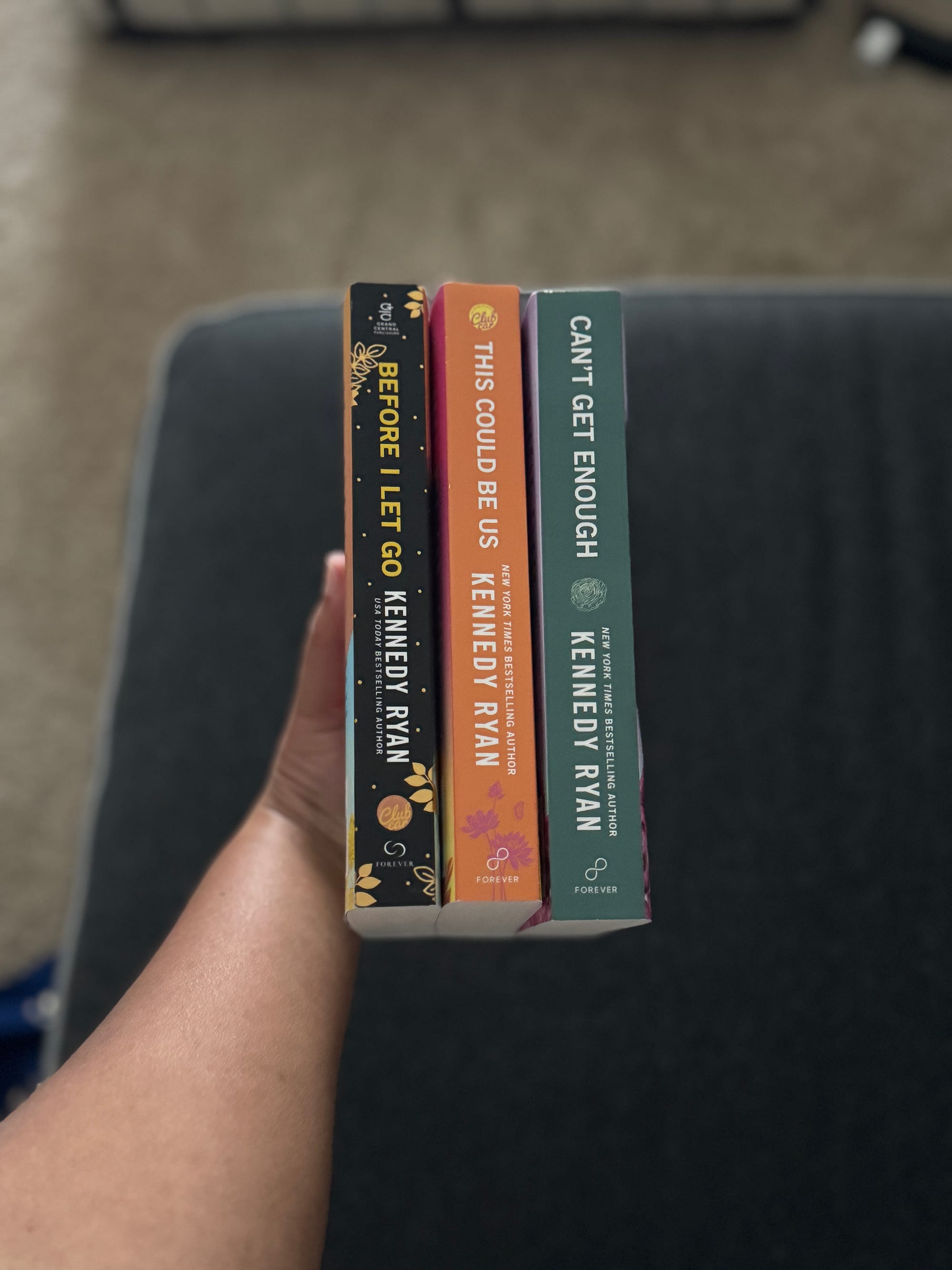
💻 What I've Consumed:
Skyland Series by Kennedy Ryan
4.25⭐️. Sometimes it is hard to find romance books about people in their 30s and older. As a 35-year-old, I am increasingly looking for those novels. The Skyland series, which introduces Yasmeen and Josiah, Soledad and Judah, and Hendrix and Mav, is a romance series that has grown people’s love. These couples aren’t finding love in high school or college, growing up together, but are finding or re-finding love in a time when they have to combat grief, aging parents, and societal pressures. I also thought the friendships were done so well. This series highlights healthy adult friendships. They are friends who are busy but remain present in each other's lives and offer help when they can. Overall, this series explored love, grief, various challenges, and the bonds of friendship. I really enjoyed reading about these women finding love and letting their friendship evolve.
My Darkest Prayer by S.A. Cosby
5⭐️. This is a gritty, fast-paced crime novel that follows Nathan, a former Marine and sheriff’s deputy, now working at a funeral home. When a local minister is found dead, Nathan is pulled into the investigation involving gangsters, porn stars, and crooked cops. Nathan is fascinating—morally gray, driven by both justice and vengeance, and has been shaped by the loss of his parents. They were murdered, and it was covered up by the town’s rich family. This fuels his distrust of local law enforcement, with whom he previously worked, and fuels his determination to uncover the truth of the minister's death. However, I will say the portrayal of women falls short—they felt one-dimensional to me, serving more as plot devices than fully fleshed-out characters. Despite this, it is a compelling read that kept me hooked from the first page. It offers a lens into the complexities of justice, particularly in communities where trust in the system has been broken. As the second book by Cosby I have read, it’s clear he’s a talented storyteller. While it has its flaws, it’s a solid crime novel that leaves you thinking long after the last page.
Anji Kills a King by Ethan Leikam
3⭐️. Anji is a castle servant tasked with cleaning laundry for a king she despises. She seizes an opportunity to kill the king. This act sets the story in motion, and she flees for her life while bounty hunters chase her. After the king is killed, chaos ensues, a brief event that is not explored further. Hawk catches Anji, who has her own reasons for keeping Anji alive and claiming the reward. Most of the story is them on the run from the other bounty hunters.
The world-building is minimal. It seemed to lean into the classic fantasy aesthetic, but it isn't vividly described. The magical elements of the masks and the political intrigue were interesting, but unfortunately, the story did not delve deeply into these aspects. Much of the plot revolves around Anji's attempts to escape, her complaints, and Hawk’s reprimands—a cycle that repeats throughout the story. The plot didn't offer many surprises, and the twist connecting Anji and Hawk felt predictable.
As a debut author, it was solid, and the style was clear and easy to follow. The pacing was decent, and it was a quick read. There was a growth in Anji as a character throughout the book; she went from an impulsive person to someone who understands the broader implications of her actions. Hawk, however, remained largely unchanged, driven by her mission from start to finish. Overall, I enjoyed the book, but I wasn’t captivated enough to await the next installment eagerly. It’s a solid debut, and I would recommend to readers who enjoy dark, morally gray fantasies with complex characters and shifting loyalties. While it didn’t become a favorite, it’s worth a read for those who enjoy this genre.
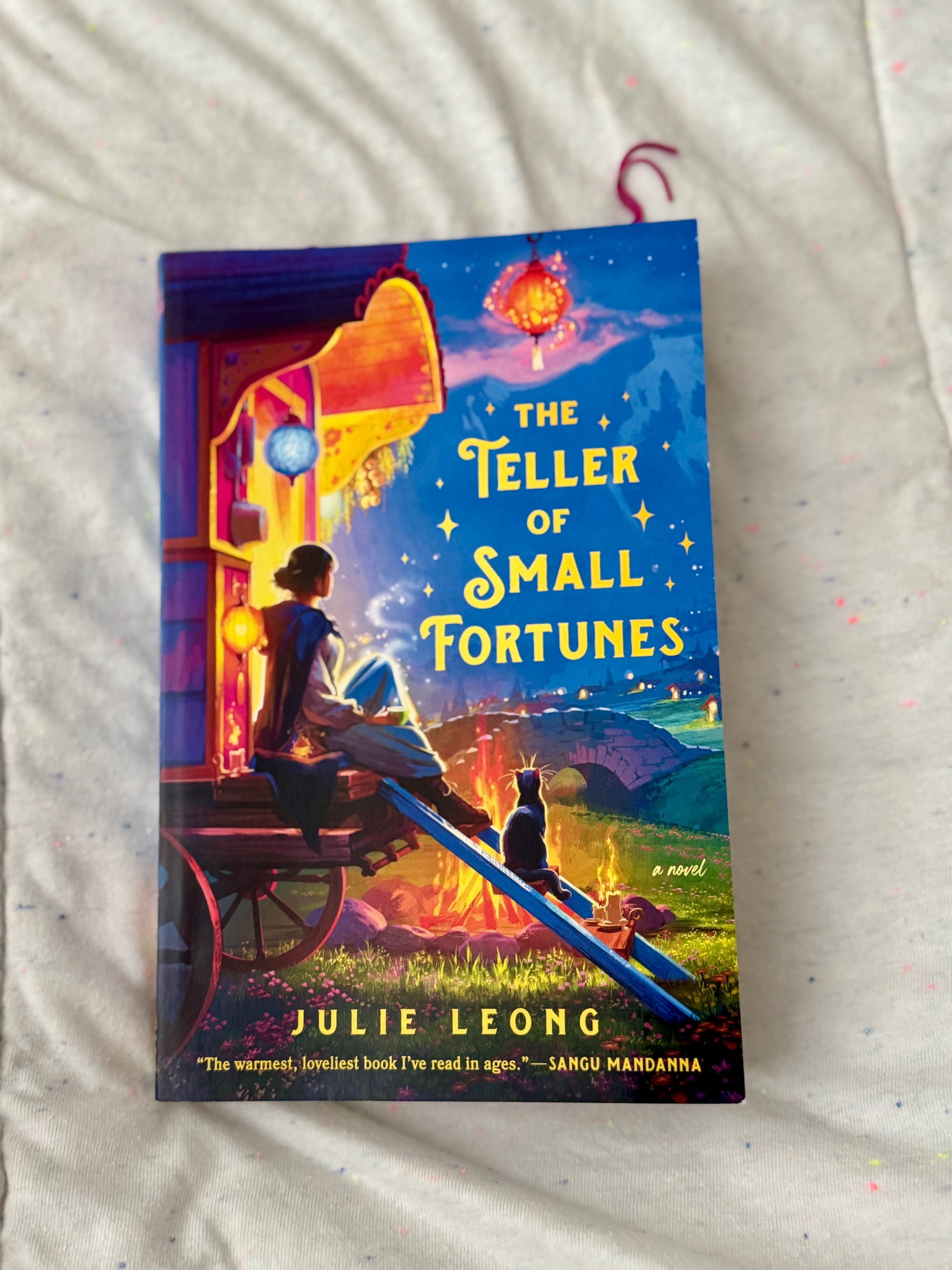
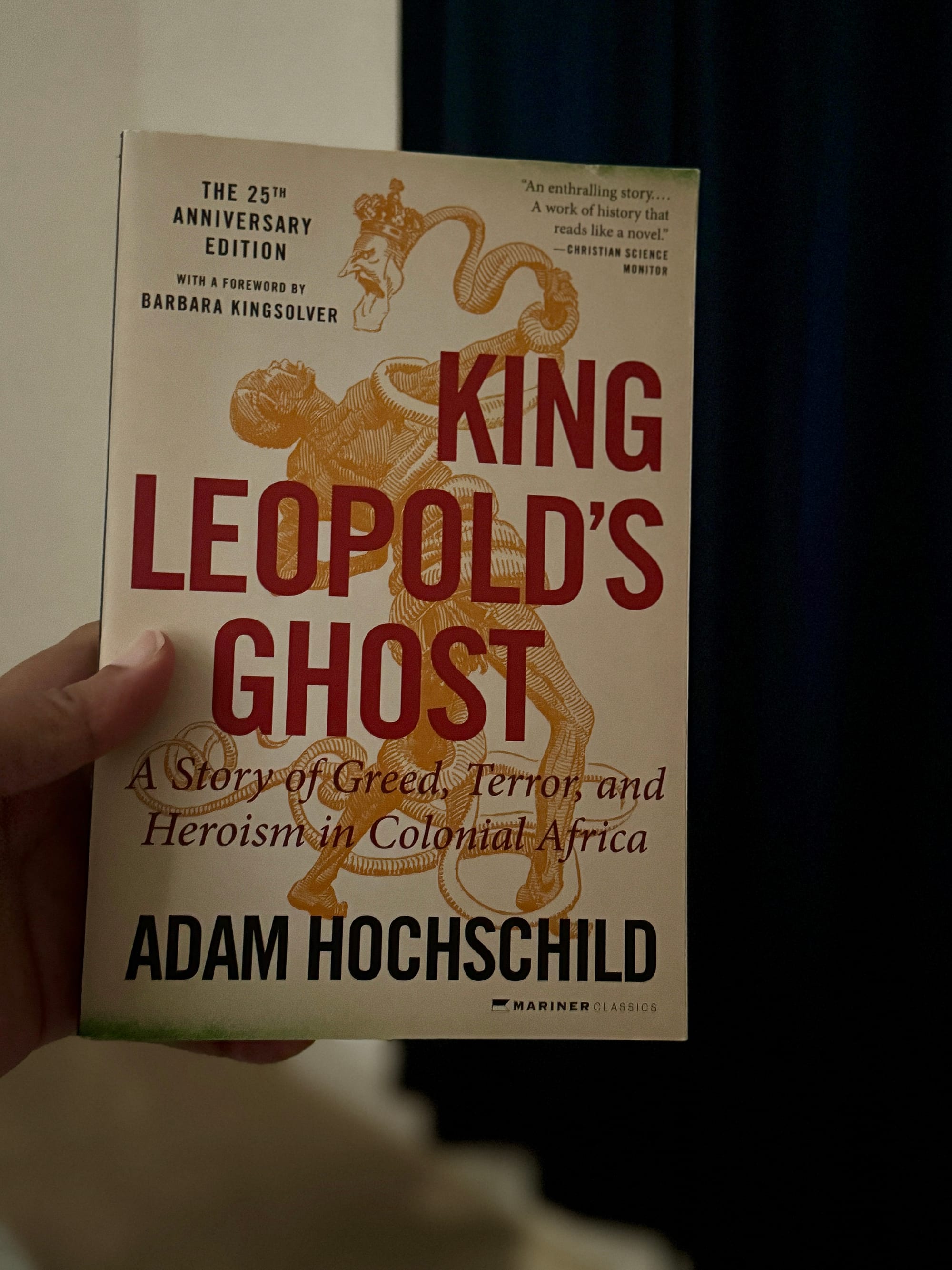
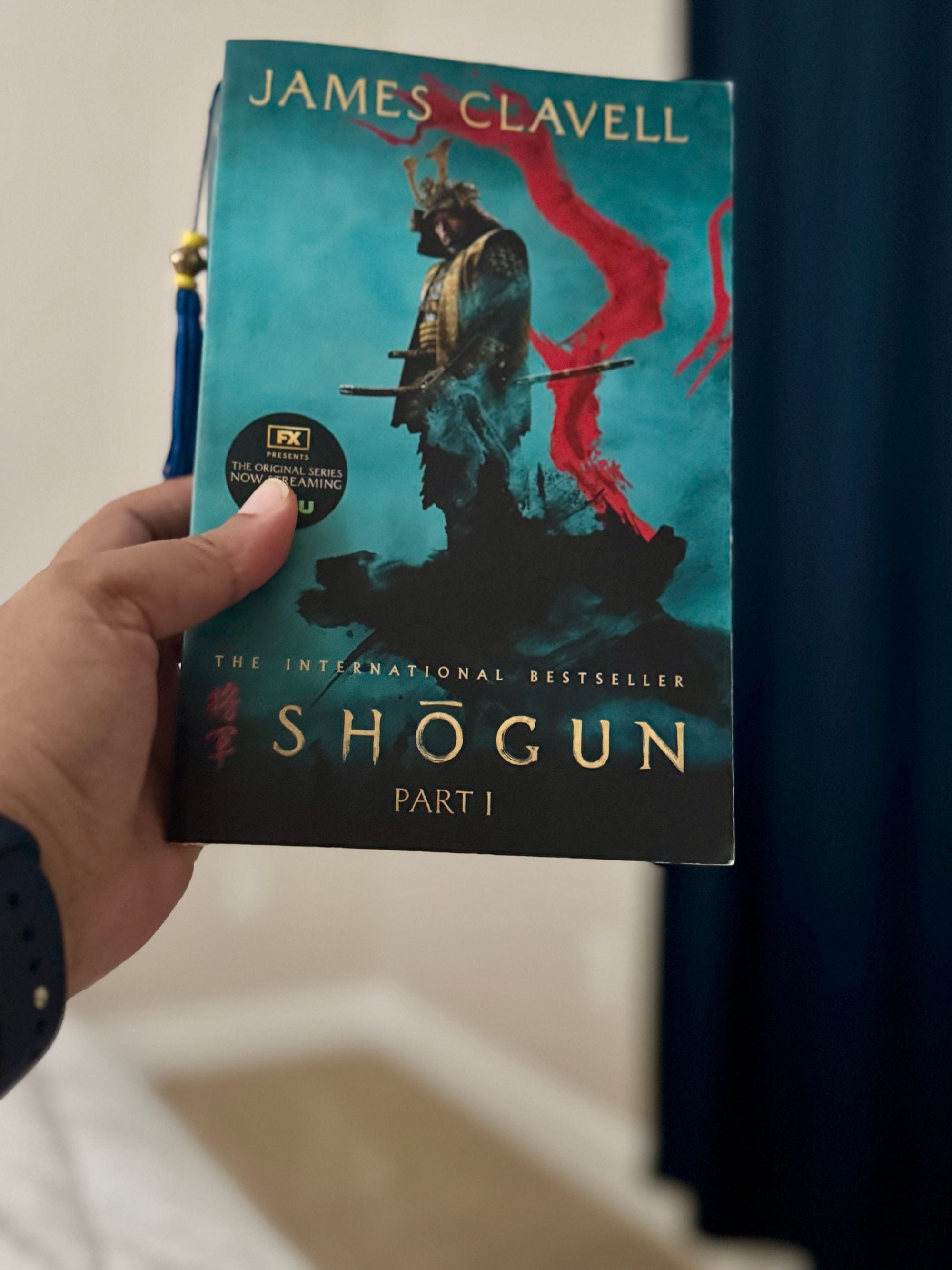
📚 Currently Reading:
- Shogun, Vol 1 by James Clavell. I am reading this book slowly. I have picked it up and put it down multiple times. However, I am still enjoying the book. While Blackthorne and Lord Toranaga are the primary characters, there are a host of side characters that come in and out. This is slow-paced, historical fiction. It is a mix of character and plot-driven story, but I think it leans heavily toward being a character-driven story. So far, at 53% into the story, I am enjoying it. I plan to finish it in August and jump straight into Vol 2.
- King Leopold's Ghost by Adam Hochschild. I started this book in June and had to take a break. It is not an easy subject matter, but it is important. I view this book as a great introduction to the history of the Congo. However, unlike Cobalt Red, it does a good job of highlighting Congolese voices while still acknowledging that there is not much to work with. This book is factual and ensures that the reader understands that even though many people turned a blind eye, there were quite a few who didn't. The author acknowledges that while these people fought for Congo, they still wanted them to be "civilized." Supremacy is not always intended to be evil, but it still led these activists to believe they knew what was best.
- The Teller of Small Fortunes by Julie Leong. This is a buddy read with a coworker, and at this point, we both are feeling as if nothing is happening. This is the first time we've read a book that is a lighthearted, cozy fantasy. This is out of my comfort zone, but I am willing to give it a try. In the story, we follow Tao, a wandering fortune teller. So far, I have been introduced to the characters that she will eventually see as family. There are some questions I have regarding where the story is going that keep me intrigued.
💡 Lessons Learned:
Octavia Butler stated:
I think science fiction readers are a little bit more willing to use their minds. They want different things to think about. They don’t want to read about things as they are. They’re bored with the present. Maybe they want to escape from the present. ~ Octavia E. Butler: The Last Interview and Other Conversations
I think that is true. It is an escape to a world that is worse off than our current situation or one that offers hope for our current situation. Here are some quotes from other fiction and nonfiction books that help highlight science fiction readers' willingness to use their minds, desire for something different, and a tendency toward escape and imaginative exploration:
- "Steal Like an Artist" by Austin Kleon:
Your brain gets too comfortable in your everyday surroundings. You need to make it uncomfortable. You need to spend some time in another land, among people that do things differently than you. Travel makes the world look new, and when the world looks new, our brains work harder.
This highlights not only the willingness to engage with newness but also the benefits of embracing differences.
- 3 Reasons Why You Should Read More Classic Literature in 2019:
To read a work of classic literature is to engage with the best work of the best minds, and do it in a way that challenges you to be better, to seek out and appreciate beauty, to ponder the big questions, to follow a line of thought, to concentrate, to transform symbols of language into an image in your imagination, to weigh assertions, to analyze, to exercise your faculties of reason.
This is also true of science fiction. It prompts you to consider the complexities of life, how our society can be improved, and how it shares similarities, all while stimulating our imagination.
- "Leviathan Wakes by James S. A. Corey, there's this assessment:
Stagnant. Humanity, for all its desire to fling itself into every livable pocket it could reach, had become stagnant. Satisfied to fly around in ships built half a cen-tury before, using technology that hadn't changed in longer than that. Earth had been so focused on her own problems that she'd ignored her far-flung children, except when asking for her share of their labors. Mars had bent her entire population to the task of remaking the planet, changing its red face to green. Trying to make a new Earth to end their reliance on the old. And the Belt had become the slums of the solar system. Everyone too busy trying to survive to spend any time creating something new.
This passage clearly highlights how readers may want to escape to the future, but also shows how the present can impact the future. The escape isn't fully there, but we still take it because the conversation happening now is the same, but it is weighed down by the boredom of revisiting the same point. Science fiction enables us to have these conversations because it provides a space to imagine the future.
If you need some recommendations, check out my Goodreads or StoryGraph. And then follow me on Instagram and Threads. One of my favorite newsletters to read for current events is Morning Brew. Check it out.
